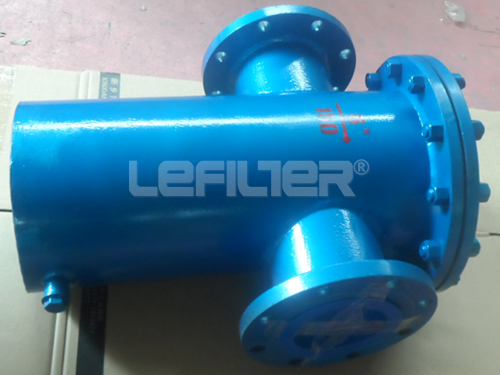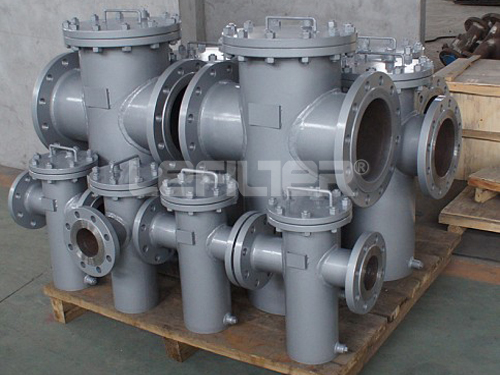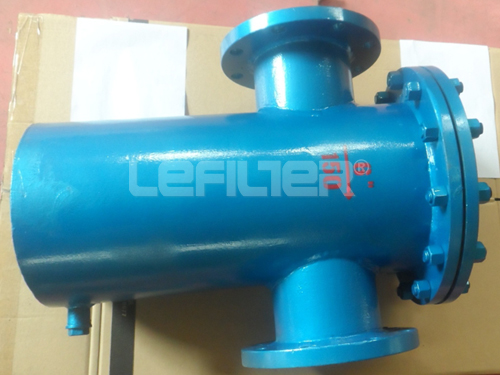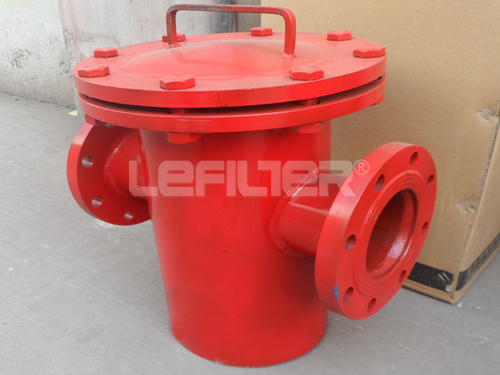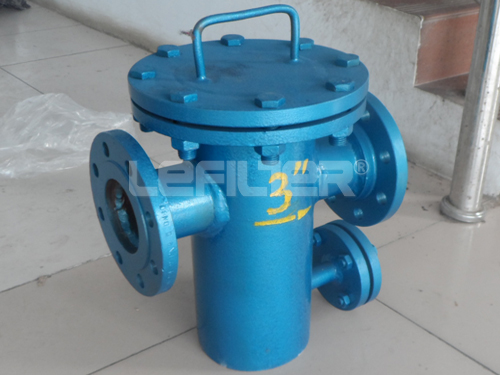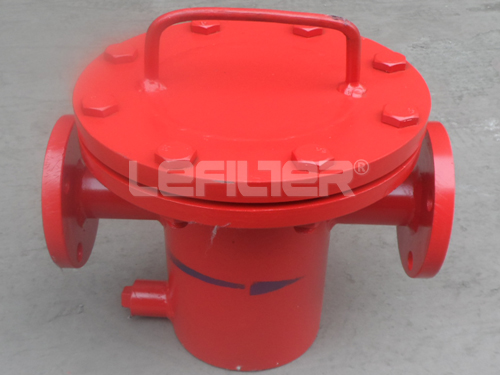In modern industrial production and daily life, basket filters play a vital role. It can effectively remove impurities from fluids, protect the normal operation of equipment, and improve product quality. However, facing the numerous brands and models of basket filters on the market, how to choose a suitable basket filter has become a problem for many users. This article will introduce you in detail how to choose a suitable basket filter from multiple aspects.
1. Clarify the filtering needs
Before choosing a basket filter, you must first clarify your filtering needs. This includes the following aspects:
Filter medium
Determine what the fluid medium to be filtered is, is it water, oil, gas or other special media? Different media have different requirements for the material and structure of the filter.
For example, for highly corrosive media, corrosion-resistant materials such as stainless steel and titanium alloy should be selected; for high-temperature media, materials and seals that can withstand high temperatures need to be selected.
Filtration accuracy
Determine the required filtration accuracy according to actual needs. Filtration accuracy is usually expressed in microns (μm), which determines the minimum particle size that the filter can intercept.
If it is used for the protection of precision equipment, a higher filtration accuracy, such as less than 10μm, may be required; while for some general filtering tasks, a lower filtration accuracy, such as 50μm or 100μm, may be sufficient.
Flow requirements
Understand the flow size of the system in order to select a basket filter with a suitable diameter. The diameter of the filter should match the size of the pipeline to ensure that the fluid can pass through the filter smoothly without excessive pressure loss.
If the flow rate is large, you can consider choosing a filter with a larger diameter or connecting multiple filters in parallel.
Working pressure and temperature
Determine the pressure and temperature range of the working environment. The basket filter should be able to withstand the working pressure and temperature of the system to ensure that there will be no leakage or damage during use.
Filters of different materials and structures have different adaptability to pressure and temperature, so when choosing, you should make a reasonable choice based on the actual working pressure and temperature.

2. Choose the right material
The material of the basket filter directly affects its performance and service life. Common materials include stainless steel, carbon steel, cast iron, plastic, etc. The following are the characteristics and application scope of various materials:
Stainless steel
Advantages: corrosion resistance, high temperature resistance, high strength, easy to clean, suitable for various harsh working environments.
Scope of application: widely used in chemical, petroleum, pharmaceutical, food and beverage and other industries, especially for highly corrosive media and high temperature environments.
Carbon steel
Advantages: low cost, high strength, can withstand high pressure.
Scope of application: suitable for some occasions with low requirements for corrosion, such as industrial water treatment, air filtration, etc. In some corrosive environments, carbon steel filters need to be treated with anti-corrosion.
Cast iron
Advantages: cheap price, high strength, suitable for some occasions with low pressure.
Scope of application: mainly used in some small filtration systems, such as household water filtration, filtration of small industrial equipment, etc.
Plastic
Advantages: corrosion resistance, light weight, low cost, easy installation.
Scope of application: suitable for some highly corrosive media and occasions with weight requirements, such as chemical, electroplating and other industries. However, the high temperature resistance of plastic filters is poor and can generally only be used at lower temperatures.

3. Consider the structural design
The structural design of the basket filter will also affect its use effect and maintenance convenience. The following are some structural design factors that need to be considered:
Inlet and outlet connection methods
Common inlet and outlet connection methods include flange connection, threaded connection, clamp connection, etc. Flange connection is firm and reliable, suitable for filters with larger diameters; threaded connection is easy to install and suitable for filters with small diameters; clamp connection is suitable for some occasions that require quick installation and disassembly.
Filter basket structure
There are many structural designs of filter baskets, such as single-layer filter baskets, multi-layer filter baskets, conical filter baskets, etc. The single-layer filter basket has a simple structure and low cost, but the filtration area is small; the multi-layer filter basket has a large filtration area and good filtration effect, but the cost is high; the conical filter basket is conducive to the precipitation and discharge of impurities.
In addition, the filter basket is also made of stainless steel wire mesh, perforated plate, sintered mesh, etc. The stainless steel wire mesh has high filtration accuracy and is suitable for filtering fine particles; the perforated plate has high strength and can withstand large pressure differences; the sintered mesh has the advantages of high filtration accuracy, high strength, and corrosion resistance.
Drainage method
There are two drainage methods for basket filters: manual drainage and automatic drainage. Manual drainage requires regular opening of the filter's drain valve to discharge impurities; automatic drainage uses sensors and controllers to achieve automatic drainage without manual intervention.
Although the automatic drainage method is convenient, it is costly. For some occasions where drainage requirements are not high, manual drainage can be selected.
Sealing method
The sealing method directly affects the sealing and reliability of the filter. Common sealing methods include rubber seals, metal seals, and polytetrafluoroethylene seals. Rubber seals have low cost and good sealing performance, but are not resistant to high temperature and corrosive media; metal seals are resistant to high temperature and corrosion, but the cost is high; polytetrafluoroethylene seals have the advantages of corrosion resistance, high temperature resistance, and good sealing performance, but the price is more expensive.
4. Choose well-known brands and reliable suppliers
When choosing a basket filter, choosing well-known brands and reliable suppliers can provide you with better product quality and after-sales service. Here are some suggestions for choosing brands and suppliers:
Understand the brand's reputation and market share
You can learn about the reputation and market share of different brands through online searches, consulting industry experts, and referring to user reviews. Choosing a brand with a good reputation and a high market share usually means more reliable product quality and better after-sales service.
Investigate the supplier's strength and reputation
Choosing a supplier with strength and good reputation can ensure the quality and delivery time of the product. You can understand the supplier's strength and reputation by inspecting the supplier's production equipment, quality management system, after-sales service system, etc. on the spot.
Compare the prices and services of different suppliers
When choosing a supplier, don't just look at the price, but also consider the supplier's service quality. Compare the prices and services of different suppliers and choose a supplier with high cost performance.

5. Consider maintenance and maintenance costs
When choosing a basket filter, you also need to consider maintenance and maintenance costs. Here are some ways to reduce maintenance and maintenance costs:
Choose a filter with easy-to-clean and replace filter baskets
Filters that are easy to clean and replace filter baskets can reduce maintenance time and costs. The filter baskets of some filters are designed to be detachable for easy cleaning and replacement; some filters have automatic cleaning functions to reduce the frequency of manual cleaning.
Choose durable materials and structures
Durable materials and structures can extend the service life of the filter and reduce replacement costs. For example, stainless steel filters are generally more durable than carbon steel filters; multi-layer filter basket filters are more durable than single-layer filter basket filters.
Regularly maintain and service the filter
Regularly maintain and service the filter to extend its service life and improve the filtering effect. Regular maintenance includes cleaning the filter basket, checking the seals, replacing damaged parts, etc.
In short, choosing a suitable basket filter requires comprehensive consideration of filtering requirements, materials, structural design, brands and suppliers, maintenance and maintenance costs, etc. Only by making a reasonable choice based on the actual situation can we ensure that the basket filter can play the best filtering effect during use and provide reliable protection for your production and life.
Other Related Products:
Backwash filter
High Flow Cartridge Filter
Basket filter
{sval:sql sql='SELECT n_parameter FROM dede_addonarticle WHERE aid = ~aid~ ' } {/sval:sql}
{sval:sql sql='SELECT n_parameter FROM dede_addonarticle WHERE aid = ~aid~ ' } {/sval:sql}












